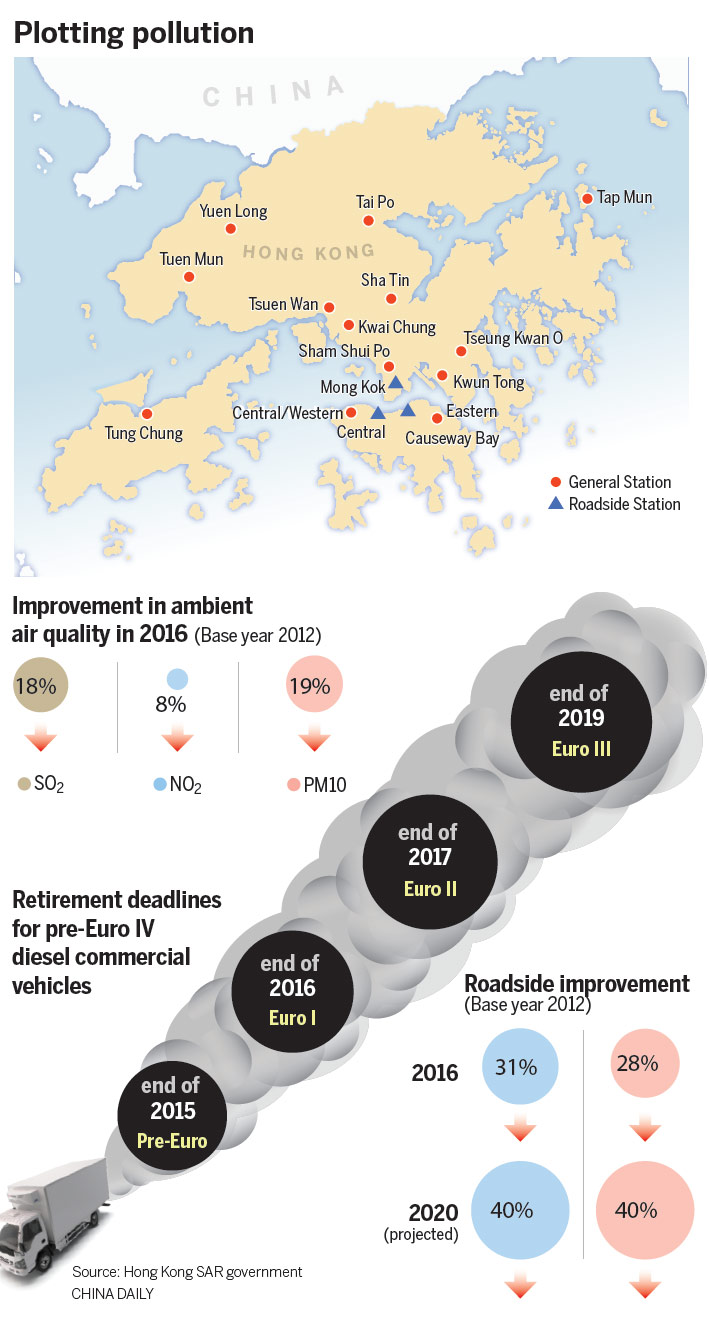Mapping a way to avoid pollution
By Sylvia Chang | China Daily | Updated: 2018-04-20 07:39

Social deprivation was measured through four socioeconomic criteria - income, education, occupation and homeownership - based on data from the 2011 Population Census.
Apart from the public at large, the system will also provide an individualized service for asthma patients and others at risk of being affected by bad air.
"This is very important, because for asthma patients, a small change in the peak value (of pollution) can be life-threatening," said Jacqueline Lam Chi-kei, an associate professor in HKU's Department of Electrical and Electronic Engineering and co-director of the platform.
The guideline set by the World Health Organization says the safe level of daily average PM2.5 concentration is lower than 10 micrograms per cubic meter.
During peak times, however, some readings from Hong Kong's monitoring stations can reach levels more than double that.
Meanwhile, nitrogen dioxide concentrations in the city still regularly top the WHO's 40 mcg/cu m guideline despite improving in recent years from an annual average that was triple the guideline.
Bad air not only leads to asthma but also to other diseases such as cancer, stroke and heart disease. For example, a study by a scientific officer at HKU's School of Public Health, Thuan Quoc Thach, shows that if a person is continuously exposed to PM2.5 for years, the risk of dying from any cancer is increased by 22 percent for each increase of 10 mcg/cu m in PM2.5 concentration.
Lam said one of the challenges in designing the model was to collect enough data about people's health.
"We need to collect data from them (asthma patients) on a daily basis, in terms of measurement of their health outcomes," she said. "That means we need to provide enough incentives to ensure that they go to clinic regularly to provide accurate data."
In terms of personal privacy, Li said the team will work with Microsoft researchers. The company has agreed to donate $500,000 worth of cloud computing services to support the platform.
The team has finished a prototype of the air quality map and will release it in one or two years. Later, it will develop a mobile app for the public to download, with the health-oriented route adviser being one of its most important functions.
That will be good news for people who now find themselves having to cover their noses while waiting for a bus.

























